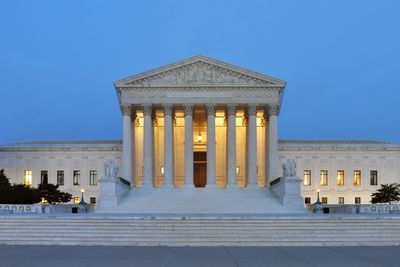Supreme Court Overrules Trump Decision to End DACA
Many people think that these are hard times for immigration and indeed that is true, but on Thursday, June 18, 2020, the U.S. Supreme Court proved that there is still hope for justice
in holding that the Trump Administration cannot abruptly shut down the Deferred Action for Childhood Arrivals Program (DACA). Announced on June 15, 2012 by the Obama Administration, DACA has enabled nearly 800,000 young people, known as Dreamers, to avoid deportation and remain in the U.S with the ability to work legally, obtain driver’s licenses, and establish credit. But in early September of 2017, the Trump Administration’s Justice Department announced that it was ending the program, with the last DACA authorization occurring on March 5, 2020. With a 5-4 majority opinion read by Chief Justice John Roberts, the Supreme Court has now overruled this closure, concluding that the 2017 decision by the Trump Administration “had broken the laws governing federal agencies because the memorandum that recommended its termination did not address crucial parts of the policy.” The majority opinion further called the Trump administration’s “total rescission” of DACA “arbitrary and capricious.”
Critically, however, Roberts pointed out that it wasn’t necessarily unconstitutional to terminate DACA, but that it was the way in which it was done by the Trump administration that was the problem. “The Trump administration had failed to give an adequate justification for ending the Obama-era program that allowed teens and young adults brought to the U.S. as children — but who lack legal status — the chance to study and work without fear of deportation.” Thus, as stated in the majority opinion, "the appropriate recourse is therefore to remand to the Department of Homeland Security (DHS) so that it may reconsider the problem anew."
This profound decision by the Supreme Court was rejoiced and met with praise by families and advocacy groups throughout the country after years of worry and mobilization. What’s next is to see how the Department of Homeland Security will deal with this decision, if at all.
Author: Jennifer Kleinman and Daniel Koburger
First Published: 06/22/2020
